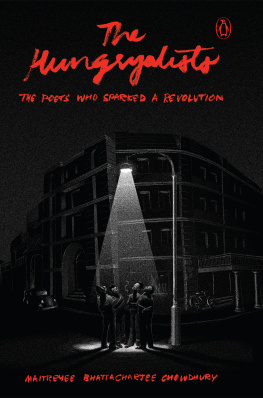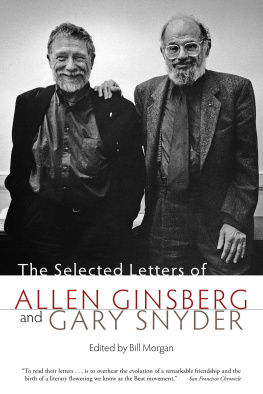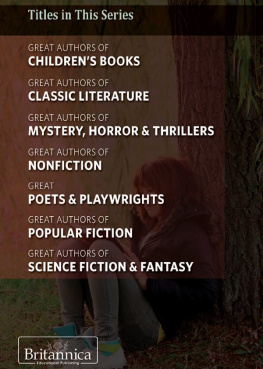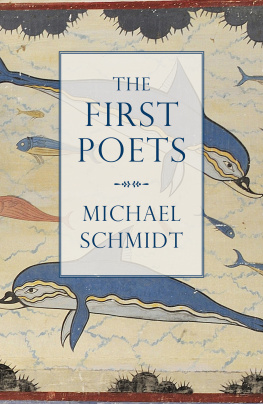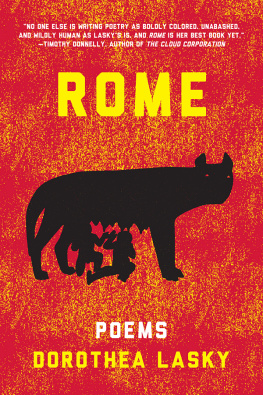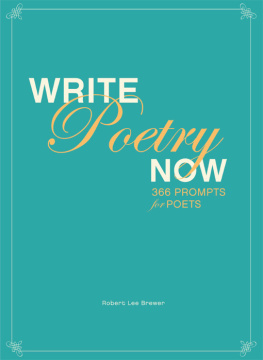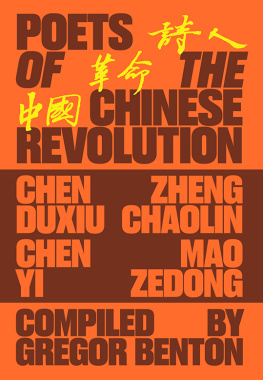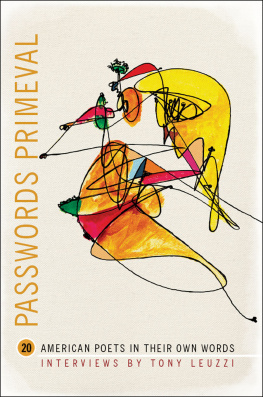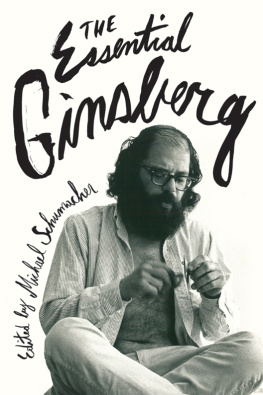Introduction
T he sixties were a turbulent period throughout the world. People subverted the morality, politics and economics of the day publicly and privately. Through it all, poetry gave vent to much of this angst and restlessness.
Counterculture has a penchant for the eccentric. The Beats and the Hungryalists, for instance, were bands of rebel poets and advocates of a poetry of chaos. After years of obscurity, Allen Ginsberg finally took his place in the limelight. Thousands of miles away, another Bengali poet broke all the rules.
Dissatisfied with society, the Beats and the Hungryalists alienated themselves from the mainstream and their movements became underground, thereby challenging the poetics of the day. These poets/writers rejected standards of literature, introduced new societal norms, shunned mercenaries of culture, and even spawned a new drug subculture. By the time they were done, the world recognized them as the most politically trenchant, culturally influential and innovative artists, whose lives spanned an extraordinary frame, thus changing the larger picture for many. These poets were eccentric, contingent rebels, and these movements were not alternative lifestyles, but life itself.
These two movements were connected by the fringe elements interwoven with counterculture, moving towards a contrary punk aesthetic with improvised nonchalance. The Beats and the Hungryalists were co-travellers in their own ways, but they werent exactly bothered about influencing each other. Some of the Beats, through their world travels, landed in India, leading to a terrific intermingling that would have a lasting impact on both sets of poets. This, then, is the story of the fantastic journeys of writers and poets, distinct in their bold subculture, just as their poetry was. Rarely have poetry movements around the world impacted generations of writers, intellectuals and thinkers in the way these two movements have. In that sense, it is also the narrative of an entire generation.
In this story of parallels, Ginsberg and Malay Roy Choudhury are simultaneous leadersspeakers for the bands of different. The journey of these movements begins with them and takes the form of visions. Sex, drugs and language are co-travellers in this self-exploration. Ginsberg reflected all that he experienced during his many travels in his poetry. And Calcutta, where most of this story is set, played a major role in his life and changed him as a person and a poet. Sunil Ganguly, Shakti Chatterjeeiconic figures in Bangla literatureshare the plot and take this story forward.
But while the story begins at poetry it doesnt necessarily end there. Like always, it is the stories in between that make the subplot richer and grittier. This, then, is a narration of love and lovers, intrigue and politics, sex and drugs, state censorship, arrests and travels. It is set in a time when wars, immigration, homelessness and poverty framed the human imagination.
The book is arranged chronologically as well as geographically. However, there has been no attempt at mapping every little nook and corner visited by these poets. Trying to include every little town and city would be an overwhelmingly impossible task and not necessarily rewarding, because the range of travel, especially for the Beats, in India and through Asia, was encyclopaedic. Locations have thus been selected based on their relevance to this narration and their significance in the artists works.
According to the format of narrative non-fiction, some poetic licence has been taken with the romantic angle in Malays life (with due permission from him) and the names of his love interests have been changed to protect the privacy of the women in question. In the end, all personal relations lie cold and exhausted and, as Ginsberg said, Ill be on impersonal curiosity hence flying around the world hoping for not. Perhaps the story of poetry found and lost is the only personal journey that survives in the end, everything else becomes a myth.
1
I n October 1962, young poet Malay Roy Choudhury boarded the newly launched Janata Express at Patna. The train would stop in Delhi before it reached Calcuttaa rather tedious journey that would go on for over two days. Malay hoped Calcutta would be pleasant this time of the year. His elder brother, Samir, had written to him just before he had left for Calcutta.
Youll reach just in time to see the city being decorated for Durga Puja. Ma arrives in the most beautiful colours and people make the most creative podiums for her to be worshipped in. The kash phool would have spread its abundance. Youll find them everywhere if you care to look, spread out sleepily in the emptiness outside the city. The sound of dhak will be everywhere and if youre lucky, youll find some of the dhakis at the Howrah station when you arrive.
Malay wondered if Calcutta had changed Samir. Patna was dry and without a trace of chill. The narrow seats and the stale air that greeted him in the third-class compartment were terrifying. He was carrying two small bags, his underwear peeking out of one, some papers and a few packets of crisps from the other. It was still early evening, with reluctant bogies standing around idly, basking in a gentle sun. It was Malays first trip to Calcutta after the establishment of the Hungry Generation.
Before the year would end, Malay would meet American poet Allen Ginsberg in Calcutta.
It was February 1961 when Ginsberg landed in Bombay (now Mumbai). Cold War was still going on, a nuclear face-off had just been averted in Cuba and Delhi was at loggerheads with Pekinga border dispute had pushed the two countries to the brink of war. And just like everywhere else, poets, writers and thinkers in India were also affected by these events.
Ginsberg visited many places in the country, including Benaras (now Varanasi), Patna, the Himalayan foothills and Calcutta (now Kolkata). During his trip, he spent most of his time mingling with like-minded poets, musicians and artists, and even wrote about them in great detail in Indian Journals.
In Calcutta, between keeping company with Ashok Fakir in Ganja Parkan area near the main road stretching from Chowringhee to Rashbehari Avenueand hallucinating at Kalis feet while lying in her temples, Ginsberg would walk around the city or watch bodies being burned in the ghats. To the ever-sceptical Bengali, he might have seemed like another disillusioned westerner doing the rounds of holy Indian cities, in search of drugs, sex and a vague notion of exotic spirituality. But Ginsberg was all that and more.

